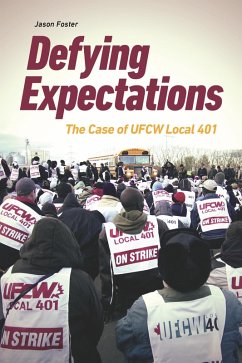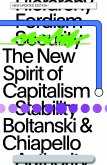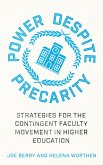It was but one example of a wide range of industries and occupations that local 401 organized over the last twenty years.
In this study of UFCW 401, Foster investigates a union that has had remarkable success organizing a group of workers that North American unions often struggle to reach: immigrants, women, and youth. By examining not only the actions and behaviour of the local's leadership and its members but also the narrative that accompanied the renewal of the union, Foster shows that both were essential components to legitimizing the leadership's exercise of power and its unconventional organizing forces.
Dieser Download kann aus rechtlichen Gründen nur mit Rechnungsadresse in A, B, BG, CY, CZ, D, DK, EW, E, FIN, F, GR, HR, H, IRL, I, LT, L, LR, M, NL, PL, P, R, S, SLO, SK ausgeliefert werden.
Hinweis: Dieser Artikel kann nur an eine deutsche Lieferadresse ausgeliefert werden.









